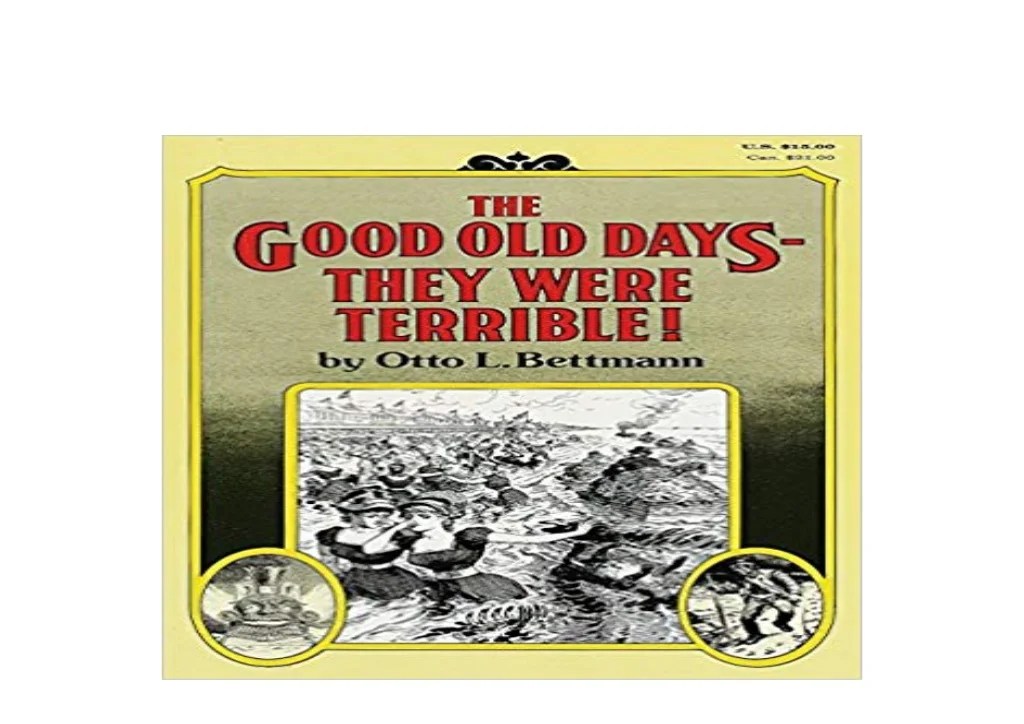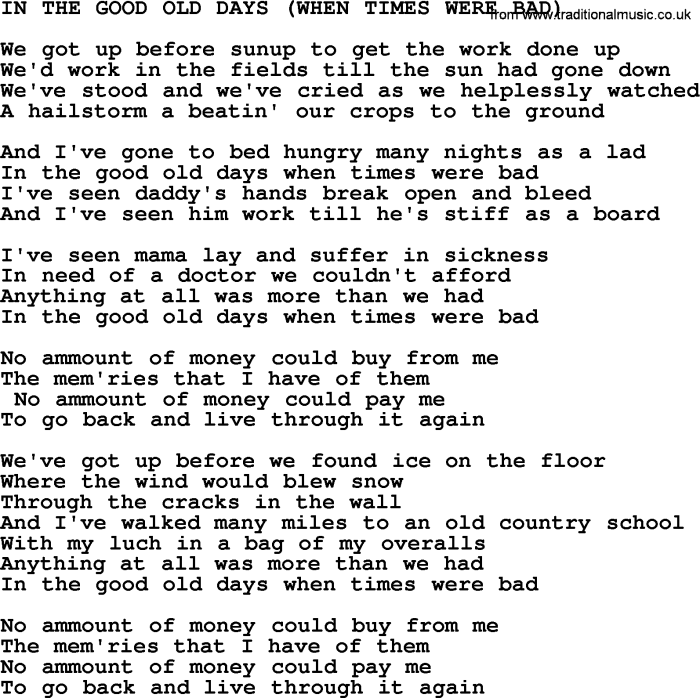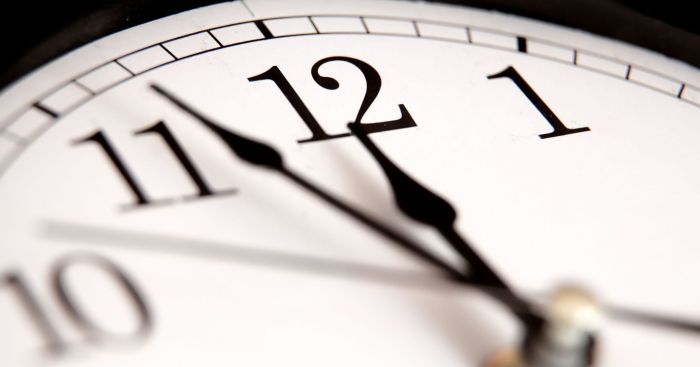Good old days they were terrible – The “good old days” are often romanticized as a time of peace, prosperity, and simplicity. However, a closer examination reveals that these days were far from idyllic.
This essay will explore the historical, societal, technological, economic, and social factors that have contributed to the perception of the “good old days” as a time of unparalleled bliss.
Historical Context
The concept of the “good old days” refers to a common perception that a past era was superior to the present. This idealized view of the past often overlooks the hardships and challenges that existed during those times.
Throughout history, various periods have been romanticized as the “good old days,” such as the Victorian era in England, the Roaring Twenties in the United States, and the post-war economic boom of the 1950s.
People tend to view the past through rose-tinted glasses, selectively remembering the positive aspects while forgetting the negative. This nostalgia can be influenced by factors such as personal experiences, cultural narratives, and a desire for a simpler time.
Societal Changes

Societal changes have significantly influenced the perception of the “good old days.” As societies evolve, new challenges and opportunities arise, leading to a shift in perspectives.
Nostalgia plays a significant role in shaping our perception of the past. It can provide a sense of comfort and connection to a time that is perceived as simpler or more familiar.
Media and popular culture also contribute to our understanding of history. Films, television shows, and literature often depict the past in a romanticized manner, which can further reinforce the idea of the “good old days.”
Technological Advancements: Good Old Days They Were Terrible
Technological advancements have had a profound impact on the perception of the “good old days.” While technology has brought many benefits, it has also led to a decline in the “good old days” perception.
Advancements in transportation, communication, and information technology have altered our way of life and affected our perception of the past. The rapid pace of technological change can create a sense of dislocation and longing for a time when things were perceived as simpler.
Additionally, the negative consequences of technological advancements, such as environmental degradation and social isolation, have contributed to a sense of longing for the past.
Economic Factors

Economic conditions have a significant impact on the perception of the “good old days.” Periods of economic prosperity tend to be viewed more favorably than periods of economic downturn.
Economic downturns can lead to widespread hardship and unemployment, which can sour people’s views of the present and make them long for a time when the economy was more stable.
Economic inequality and social mobility also play a role in shaping our understanding of history. Those who feel left behind by economic progress may be more likely to view the past as a time of greater opportunity.
Social Issues
Specific social issues that have worsened over time have contributed to the perception of the “good old days.” Issues such as poverty, crime, and inequality have affected people’s perception of the past.
Social problems can create a sense of insecurity and fear, leading people to long for a time when society was perceived as safer and more just.
Social movements and activism have also had an impact on our understanding of history. These movements have brought attention to social injustices and inequalities, which has led to a more critical examination of the past.
Common Queries
Were the “good old days” really better?
No, the “good old days” were not better. While some aspects of life may have been simpler, overall, the past was a time of widespread poverty, disease, and inequality.
Why do people romanticize the past?
People romanticize the past for a variety of reasons, including nostalgia, a desire for a simpler time, and a lack of understanding of the realities of the past.


